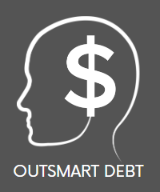Your Guide to Understanding the Impact of Debt Settlement on Your Credit Score
Are you considering debt settlement as a way to relieve your financial burden? Before you make any decisions, it’s essential to understand how debt settlement can impact your credit score. In this comprehensive guide, we will walk you through the ins and outs of debt settlement and its potential consequences for your credit.
Debt settlement can provide a viable solution for individuals drowning in debt. It involves negotiating with creditors to reduce the total amount owed and reach a settlement agreement. While it can help you get out of debt faster, it’s not without drawbacks.
Whether you’re curious about the impact of debt settlement on your credit score or considering this option, this guide will equip you with the knowledge you need. Let’s explore how debt settlement can influence your financial well-being and creditworthiness.
What is debt settlement?
Debt settlement is a debt relief option where you negotiate with your creditors to pay less than the total amount owed. It is typically used when you are unable to make your minimum monthly payments and are facing significant financial hardship. Instead of filing for bankruptcy, debt settlement allows you to reach a compromise with your creditors.
The process may include working with a debt settlement company or negotiating directly with your creditors. You or they will negotiate to reduce the principal amount owed, waive fees, and/or lower interest rates. Once an agreement is reached, you will make a lump sum payment or set up a payment plan to settle the debt.
Debt settlement can be an attractive option for individuals struggling with unmanageable debt. However, it’s crucial to understand the potential consequences before proceeding.
How does debt settlement work?
The debt settlement process typically involves the following steps:
1. Assessment: You assess your financial situation and determine if debt settlement is the right option for you. This involves analyzing your debts, income, and expenses to understand your ability to make payments.
2. Engagement: You engage with a debt settlement company or negotiate directly with your creditors. If you choose to work with a company, they will evaluate your financial situation, explain the process, and develop a strategy for negotiating with your creditors.
3. Savings Account: You start depositing money into a dedicated savings account specifically for debt settlement. This account will accumulate funds that will be used to make settlement offers to your creditors.
4. Negotiation: The debt settlement company or you negotiate with your creditors to reach a settlement agreement. This involves presenting a lump sum payment or a structured payment plan that is acceptable to both parties.
5. Settlement: Once an agreement is reached, you make the agreed-upon payment to your creditor, and the debt is considered settled. This typically results in a significant reduction in the total amount owed.
Pros and cons of debt settlement
Before deciding to pursue debt settlement, it’s important to weigh the pros and cons. While debt settlement can offer some relief, it may not be suitable for everyone. Here are some potential advantages and disadvantages to consider:
Pros of Debt Settlement
1. Reduced Debt: Debt settlement can provide a significant reduction in the total amount owed, allowing you to become debt-free more quickly.
2. Avoid Bankruptcy: Debt settlement can be an alternative to filing for bankruptcy, which can have more severe and long-lasting consequences.
3. Single Payment: Debt settlement often involves making a single lump sum payment or a series of smaller payments, simplifying your financial obligations.
Cons of Debt Settlement
1. Credit Score Impact: Debt settlement can have a negative impact on your credit score. It will result in a lower score and remain on your credit report for several years. This is because while you are placing funds into the dedicated “savings account”, payment to your creditors is being withheld for the purpose of getting them to the negotiation table.
These delinquent payments are accumulating on your credit report. In addition, creditors may opt to send your account to a collection company, thus putting a “collection” on your credit report. If the creditor feels that your debt is uncollectible, they may even put a “discharge” on your credit report (which is worse than a “collection”).
Even if you are successful at negotiating a settlement, many creditors will place, “Settled for less than amount owed” on your report, which is another red flag.
2. Creditor Relations: The debt settlement process can strain your relationship with creditors, as negotiations often involve defaulting on payments.
3. Tax Consequences: If a portion of your debt is forgiven through settlement, it may be considered taxable income, potentially resulting in a tax liability.
4. The debt settlement program that you select may be less than ethical. There are many such companies that prey on people who are in desperate need of debt relief, so take your time and do a lot of research before making a final decision.
While debt settlement can offer relief from overwhelming debt, it’s important to carefully weigh these pros and cons before making a decision.
Impact of debt settlement on your credit score
Understanding the potential impact of debt settlement on your credit score is crucial for making an informed decision. While debt settlement can provide financial relief, it’s important to consider the long-term consequences.
Understanding Credit Scores and Credit Reports
Before diving into how debt settlement affects your credit score, let’s first understand credit scores and credit reports. Your credit score is a numerical representation of your creditworthiness, ranging from 300 to 850. It is calculated based on various factors, including payment history, credit utilization, length of credit history, and more.
Your credit report contains detailed information about your financial history, including your credit accounts, payment history, and any negative information such as late payments, collections, or bankruptcies. Creditors and lenders use this information to assess your creditworthiness and determine the terms and conditions they are willing to offer you.
Factors That Affect Your Credit Score
Several factors influence your credit score, including:
1. Payment History: Your track record of making payments on time.
2. Credit Utilization: The percentage of available credit you are using for unsecured debts, such as credit cards.
3. Length of Credit History: The length of time you’ve had credit accounts open.
4. Credit Mix: The types of debt accounts you have, such as credit cards, loans, or mortgages.
5. New Credit: Recent applications for credit can indicate increased risk.
Understanding these factors is essential for assessing how debt settlement may impact your credit score.
How Debt Settlement Affects Your Credit Score
Debt settlement can negatively impact your credit score in several ways:
1. Late Payments: Debt settlement often involves defaulting on payments to demonstrate financial hardship, which can result in late payment notations on your credit report.
2. Credit Utilization: During the debt settlement process, you may stop making payments on your debts, which can increase your credit utilization ratio and negatively impact your score.
3. Credit Report Notations: The settlement itself will be noted on your credit report, indicating that you did not pay the full amount owed.
4. Lower Credit Score: The combination of late payments, increased credit utilization, and settlement notations can result in a lower credit score.
It’s important to note that the exact impact on your credit score will depend on your unique financial situation and how your creditors report the settlement.
Understanding credit scores and credit reports
While debt settlement can have a negative impact on your credit score, it’s not the end of the road. With time and effort, you can rebuild your credit and improve your financial standing. Here are some steps to consider:
1. Pay Bills on Time: Make it a priority to pay all your bills on time going forward. Payment history is a crucial factor in rebuilding your credit.
2. Manage Credit Utilization: Keep your credit utilization low by using only a small portion of your available credit. Aim to keep your utilization below 30%.
3. Establish New Credit: Consider opening a new credit card (you may need to start with a secured credit card) or small loan to establish a positive payment history. Try to establish three such accounts. Be sure to use them responsibly and make timely payments.
4. Monitor Your Credit: Regularly review your credit reports to ensure they are accurate. Dispute any errors or inaccuracies that may negatively impact your score.
5. Patience and Persistence: Rebuilding your credit takes time, so be patient and persistent in your efforts. Over time, positive financial habits will help improve your creditworthiness.
Alternatives to Debt Settlement
While debt settlement can be a viable option for some, it’s important to explore alternative options before making a decision. Here are a few alternatives to consider:
1. Fire sale: Sell off all the assets you no longer need (like that old boat) to pay off debt.
2. Debt Consolidation: Combining multiple debts into a single debt consolidation loan with a lower interest rate can make it easier to manage your payments.
3. Credit Counseling: Working with a credit counseling agency can help you develop a budget and repayment plan to tackle your debts.
4. Debt Management Plan: A debt management plan involves working with a credit counseling agency to negotiate lower interest rates and more manageable payments with your creditors.
5. Bankruptcy: If your financial situation is dire and other options are not feasible, filing for bankruptcy may provide a fresh start. However, it should only be considered as a last resort due to its long-term consequences.
It’s essential to consult with a financial advisor or credit counselor to determine the best course of action for your specific situation.
Conclusion
Debt settlement can be a valuable tool for individuals struggling with overwhelming debt. It offers the potential for significant debt reduction and a path towards financial freedom. However, it’s important to weigh the pros and cons, as debt settlement can have a negative impact on your credit score.
Understanding the factors that affect your credit score, the potential consequences of debt settlement, and the steps to rebuild your credit is essential for navigating this process successfully. Consider alternative options that align with your financial goals.
Remember, the journey to financial stability takes time and effort, but with the right strategies and a commitment to responsible financial habits, you can regain control of your finances and build a brighter future.







